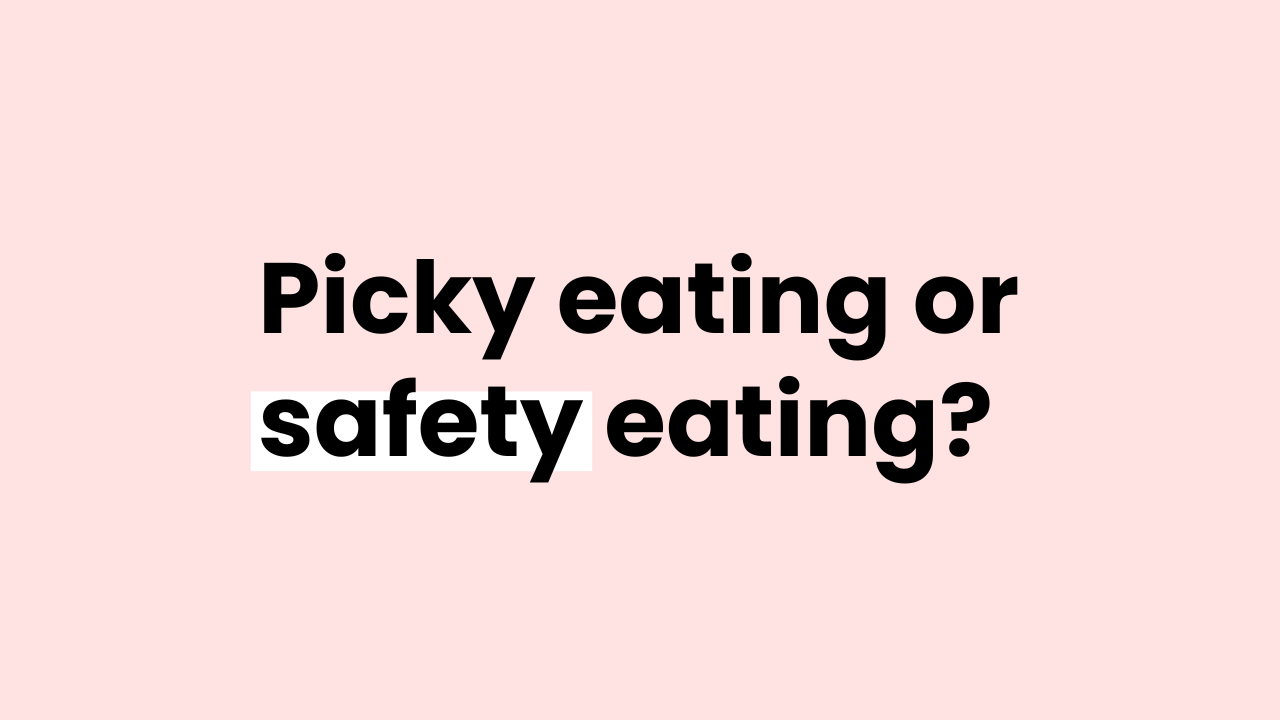Picky eating or safety eating?
May 14, 2023
Many autistic people are considered “picky” eaters. I myself ate the same thing for breakfast, lunch, and dinner for almost 10 years straight.
This all changed when I developed my ED at the age of 11. When I started learning about health and nutrition in middle school, my autistic brain took all of the health “recommendations” very literally. That’s when I started labeling food as “good” and “bad” and developed fears around what would happen if I didn’t exercise for X amount of minutes per day.
Suddenly, my sugary cereal breakfast, PB&J lunch, and mac ‘n cheese dinner flew out the window without question as I set out on a mission to follow the “perfect” diet of whole grains, fruits, vegetables, and everything else I learned was “healthy” from the internet.
If my food preferences up until the age of 10 really had been “picky,” it would have been impossible for me to switch up my diet in such a short span of time. If other autistic people and those with ARFID were merely “picky,” they wouldn’t have such deep rooted fears or internalized trauma around certain foods. Avoiding food goes against one of human’s greatest survival needs, meaning there must be an incredibly strong reason for avoidance behaviors.
The only reason for a human to keep away from something necessary for survival is if another survival mechanism has taken its place. To elaborate, let’s take the fight or flight response: a primitive reaction to a threatening situation. If an individual’s sympathetic nervous system (responsible for this response) activates, they will either fight or flee – naturally, it is impossible to do both.
Our biological nature constantly has us making trade-offs based on what it deems optimizes our survival most. If you are malnourished, you likely have a difficult time sleeping. This is because your body is trying to keep you awake to seek out food. Even though eating and sleeping are important, food-seeking behavior is more important than sleeping when someone isn’t eating enough. Thus, your primitive brain is willing to trade sleepiness for wakefulness and a hyper-focus on food.
In the case of avoidant food behaviors, individuals do not feel safe. There’s a reason the foods they do eat are called “safe foods”! Growing up undiagnosed autistic, I would only eat the same things for every meal, every day because it provided me a sense of security in a world that was utterly unpredictable and confusing. When I learned about health and nutrition however, I suddenly perceived the foods I had been eating as “bad” and thus, eating them would no longer make me feel safe.
At that turning point in my life, the foods I researched and learned about were now safe, which is why I was able to start eating them so quickly and easily. In fact, they became so safe that I started to fear any foods that couldn’t be labeled with my subjective opinion of “healthy.”
In ARFID and other common forms of unique eating among the neurodivergent population, individuals have strong aversions to food, have internalized trauma around certain food, and/or simply have no interest in food. These are all trade-offs the body is willing to make to protect the individual from something the brain has perceived as threatening.
All this being said, it’s critical we change the negative narrative around “picky” eating and take a more compassionate and understanding approach to support our loved ones struggling with food. After all, negativity does not drive out negativity. Only love can do that <3


